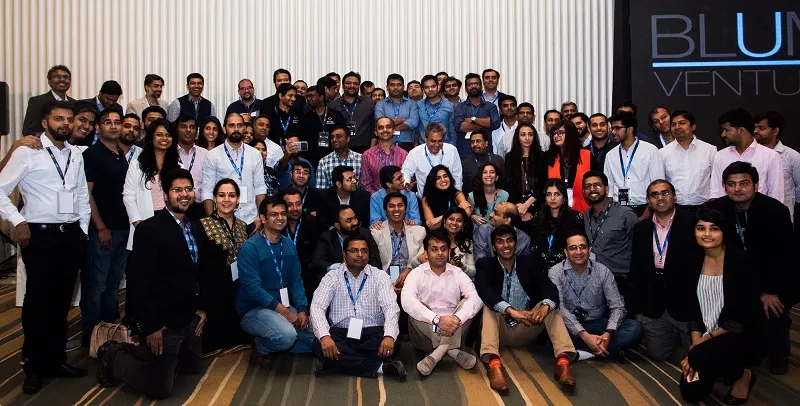Culture, character, and cleaning up not side dish but main course
Rapid user adoption, impressive growth, and healthy margins are important indicators of startup success. However, we often overlook the 'softer aspects' - factors we may otherwise view as side dishes but which are in fact, the main course.
“Honesty is a very expensive gift, don’t expect it from cheap people.”
- Warren Buffett
The core of our job as a VC is to back founders who will ultimately create exponential value by solving India’s and/or the world’s hardest problems. As a founder, your job mirrors this, with the additional twist of your having to convince a host of stakeholders to join your ship – co-founders, senior employees, customers, partners, and of course, us – investors.

The softer things
“Successful” startup trajectories centre on great teams, rapid user adoption, product excellence, impressive ‘hockey-stick’ growth, and more. What’s less talked and written about are the ‘softer aspects’ of great teams – culture, character, personal integrity, how founders treat all stakeholders.
Here are some more quotes and recent conversations with members of the ecosystem:
“The problem was with the King, not Kingfisher. Stakeholders bought into the ‘he is too big to fail’ fallacy. Don’t blame the entire company for one man’s sins.”
- Capt. Gopinath, Air Deccan Founder, ET April 22
We’ll get to value prop, business growth, and metrics later; let’s talk about the founders on this first call. How well do you know them, their personal backgrounds, and character?
- From a Valley VC diligencing one of our portfolio companies (of a 45-minute call, we spent half the time on the above)
A key investment tenet espoused by one of our earliest LPs focuses on the “Founder Values System”.
So, what’s the point here? Why should we care?
The focus on founders (and their character, drive, and passion – their very essence) shouldn’t just be topical, especially given the slew of recent incidents involving a number of Indian founders around matters of financial impropriety and irregularities, harassment, intimidation, and what has sometimes become a “bro culture”.
Ninety percent of the bet we’re making is centered on the founders. A recent tweet put it succinctly – as early-stage investors, we're talent scouts first, financiers second.
However, in the attempt to accelerate deal closure, the broad community (investors, founders, their advisors, and so on) tends to overly focus on valuation, financial models, projections, business metrics like ARR, GMV, NPS scores, and so on. While the above are the very basis for valuing a raise, the softer aspects can be often overlooked.
In fact, these “soft things” are the hard things.
But again, why should we care now?
Let’s begin with what’s working well in the Indian ecosystem – most VCs (including us) have raised funds two or three times the size of their previous ones. So, there is cash to deploy into the most interesting and innovative startups. One could arguably say that only the serious entrepreneurs, angels, and investors have remained – a healthy side-effect of the past two years.
How do we get all stakeholders – senior hires, the next line of aspiring employees, the next round of investors etc. – to trust us?
I started thinking about some of the key pillars that could make up this construct, and below are just three that came to mind:
- Culture
- Corporate governance
- Character

Culture
Many think of culture as the “soft stuff” one has to do by bringing in HR experts to lecture companies on policies, procedures, and processes. Those who know better are aware that culture transcends these softer aspects – it’s not an afterthought, but the very essence that drives business.
For example – what's the right culture to
- achieve our vision, mission, and goals?
- ensure we’re hiring the best people, then growing and retaining them?
- measure our progress on a daily/monthly/quarterly/yearly basis?
Even if the above questions are asked and the metrics tracked, there is still one question that remains – what are the right behaviours that will make or break this culture? What behaviours should be encouraged, and more importantly, which ones should not be tolerated?
If we revisit the recent spate of news, one common question posed by observers is – why, if the founders are doing it, and the startup is a category leader poised for market leadership, can’t we just look the other way and get on with business?
The counter argument to this is twofold:
a) it condones bad behaviour as long as performance is high, and
b) the argument breaks when performance is sub par. When that happens, no one wants to work with you anymore, and it’s a downward spiral from there.
The softer aspects of culture – behaviour first and foremost – are vital to the success of a startup. Let’s go about fixing this, right away.
Corporate governance
On that 45-minute call with an overseas investor, at least half an hour was spent talking about the founders (basically me answering his Q&A)!
Founders are (sometimes rightfully) protective about controlling the company's direction, and the board is the primary vehicle to implement this. Understandably so – it’s “your” baby, you’ve put your blood, sweat, and tears into it, while at the same time convincing your co-founders to do exactly the same, and you don’t want to risk losing that.
But “good” founders realise that there is also an obligation that comes with taking outside money (and for those that don’t want this – hey, you don’t have to take it! There are plenty of bootstrapped ventures doing well out there, starting with Sreedhar Vembu at Zoho). It’s not an obligation just to your investors, but also to yourself, your first line employees, and all stakeholders that your startup touches – to do what’s right for the company, at all times.
A further nuance would be that one could expand the obligation and make it an opportunity, to get a kickass group together that’d be a great sounding board.
Corporate governance is more than just forming and leveraging a great board – it’s equally about how the startup deals with ALL stakeholders – including even vendors and suppliers, partners, and contract employees in a fair and transparent way.
It’s always easiest (and less expensive) to “clean up early” – be it adding independent board members or domain experts, restructuring your company, cleaning out a messy cap table, or protecting and regularising your IP. ‘Cleaning up’ now rather than later is always the most helpful – it shouldn’t distract you from your KPIs; and again, it will be more expensive and cumbersome if you defer cleaning up for later!
Character

“A flaw in human character is that everybody wants to build and nobody wants to do maintenance.”
– Kurt Vonnegut
Our friends at Bain & Co. have conceptualised a framework called “The Founders Mentality”. The key tenet here is that founders that have stayed true to a startup’s core have seen the greatest increase in shareholder value and startup longevity.
When you think about the “value system” that early LP of ours was talking about, you see that it’s the core: what is it about the founder’s character that enables him or her to gain, retain, and grow the trust existing stakeholders have placed in them – and attract new stakeholders to buy into their story and jump aboard?
- How do you treat people around you – inside and outside the company?
- How do you “close” discussions (including with employees who are rejected)?
- What behaviours are encouraged and how are rewards tied to it (think Ola/Uber rating its drivers)?
- Which behaviours are not to be tolerated, and, in fact, punished?
- How do you deal with disagreement – with your co-founders/core team/ investors/ board/ advisors?
- How would you deal with a situation where a high performing employee has “behaved badly” (the trickiest of situations – ignore/stern warning/fire?)
Founders-first
We exist because of our founders. Our LPs trust us and give us money to deploy it into the most innovative ideas backed by passionate and driven founders. We create and realise value only with the founders – we sink or swim together! That said, all first principles need checks and balances.
Helpful gyan vs. raves and rants
Sharing insightful and helpful gyan within the founder community creates a unique bond, making it akin to a fraternity group. We’re all for it – the more transparent and open sharing, everyone wins.
Sometimes, though, the line is crossed from helpful gyan (insights) to personal rants and raves. Then, diminishing laws of return apply, and bashing any particular set of stakeholders is rarely helpful.
Getting real
At the “exit gates”, only numbers matter. There is no art, nor is there any science – only math. Till we get there – and we have a long way to go, collectively – let’s put our heads down, building our respective businesses, quietly.
As VC-founders ourselves, we will always strive to keep that same "first-founder lens", regardless of increasing AUM size.
If you’re hiring the right and best people around you, delighting your customers, and keeping your investors and board in the know, the numbers and results will come. You can fix your sales. Ditto for product/market fit.
But you can’t force fit (or fix) culture, corporate governance, and character all on the fly. It can't be an afterthought. Setting the right behaviours and incentive mechanisms for high performance (and culture, character, corporate governance) has to be part of the plan. In fact, it IS the plan.
It’s not the side dish – it’s the main course! So, let’s get real, clean house, and get back to building businesses.







